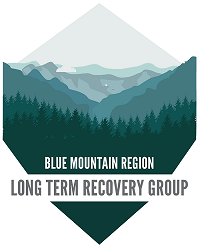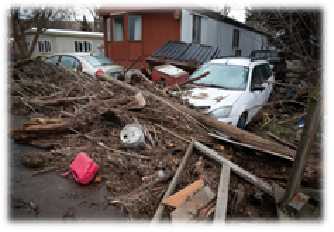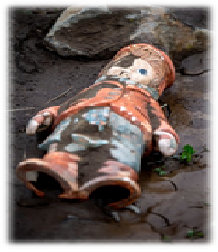
 The recent violent hailstorm in the town of Wallowa, Oregon, damaged hundreds of homes and affected many families. Softball sized hail destroyed roofs, broke windows and ruined vehicles. United Way of the Blue Mountains urgently needs your donations and volunteers to help those displaced and hurting in Wallowa.
The recent violent hailstorm in the town of Wallowa, Oregon, damaged hundreds of homes and affected many families. Softball sized hail destroyed roofs, broke windows and ruined vehicles. United Way of the Blue Mountains urgently needs your donations and volunteers to help those displaced and hurting in Wallowa.
Winter is coming quickly: Roofs need to be tarped, chimneys repaired and windows replaced or insulated. Please donate to help our neighbors in Wallowa. If you have time to volunteer, please contact us and find out how you can help. If you need help with recovery, please fill out the application below.
Blue Mountain Region Long Term Recovery Executive Committee provides coordinated management of unmet needs and long-term recovery for disaster survivors in Walla Walla and Columbia counties in Washington, and Umatilla and Wallowa Counties, Oregon including the Confederated Tribes of the Umatilla Indian Reservation.
The Executive Committee is a cooperative body that is made up of representatives from faith-based, non-profit, government, business, and other organizations working with community members, local, state, and federal agencies to assist individuals and families as they recover from the disaster. The goal of the Executive Committee is to unite recovery resources with the community need in order to ensure that even the most vulnerable in the community recover from the disaster.
We will serve regardless of race, creed, color, gender, disability or religious preference. We will strive to:
- Provide coordinated management of disaster long-term recovery.
- Provide long-term assistance, as available, to eligible individuals affected by the disaster.
- Advocate for ongoing resources and preparedness cooperating with federal, state, and local government, the faith-based community, civic and voluntary agencies active in disaster.
- While we cannot undo the disaster families and individuals have experienced, we desire to help them establish a new “normal” for their life.
The Unmet Needs Roundtable (UNR) of the Long-Term Recovery Group (LTRG) provides assistance for eligible individuals and families using a fair and equitable case management process. Combined donations from all sources will not be enough to make survivors whole, thus it is necessary to prioritize eligibility. Membership on the Unmet Needs Table is restricted to those organizations with manpower, money, and/or materials that are available for distribution to meet the unmet needs of disaster survivors.
A limited amount of funding is available for survivors who have not been compensated from insurance or other sources such FEMA, SBA, or state emergency relief. Even with such assistance survivors will have unmet needs. The objective is to compassionately assist survivors in obtaining a safe, sanitary, and secure primary residence, returning to pre-disaster livelihood, and assistance with other disaster-caused or disaster-related needs.
If you or your organization have volunteers, funding, or materials to donate, we welcome your participation in the Unmet Needs Roundtable of the Blue Mountain Region Long Term Recovery Group. If interested, please email us at christy@uwbluemt.org, or call 509.529.1183.
The Volunteer Committee (VC) provides oversight of the volunteer initiatives for the Long-Term Recovery Group. This is done by creating policies and procedures to keep volunteers safe and productive. In close collaboration with the Disaster Case Manager, the VC identify projects that are volunteer friendly and help set the priority. The VC then focuses on recruiting, training, and coordinating volunteer leaders to provide the best opportunities for a volunteer to respond during the recovery phase of a disaster.
Rebuilding after a disaster can feel overwhelming, and even though financial aid may be available, it usually is never enough. Involving volunteers allows for funds to be stretched and many times doubled or tripled in value. The VC team strives to serve with compassion and help survivors return to a safe, sanitary, and secure primary residence.
If you are a group leader or an individual interested in volunteering, please visit our Get Involved section of the website to learn how to volunteer.
The Emotional and Spiritual Support Committee of the Blue Mountain Region Long Term Recovery Group assists with the trauma caused by a disaster as the name implies. We provide sensitive listening and spiritual support to people who have been traumatized by a regional disaster. Our members are trained in disaster chaplaincy or have received sensitivity training in order to appropriately listen to and address the emotional and mental health needs of survivors.
Committee members often include local church pastors and others trained to provide a listening ear and advocacy for appropriate follow-on support to survivors. Our members are not mental health providers or counselors but do know when to refer a survivor to a more suitable provider for follow-on treatment and care. We are connected to local mental health providers and agencies for this purpose.
This is function that can be tailored to each disaster and may require additional grant funding to provide such counseling services. Members can be from counseling services agencies, faith-based groups, recovery programs, etc. The role of the committee is to:
- Distribute informational brochures directly to affected residents and throughout the community
- Assist individuals with emotional needs
- Organize support and educational meetings to help re-establish a sense of community
- Make formal presentations within the community to educate individuals and groups about available support
- Provide services and resources as required to support the community
In February 2020 the Blue Mountain region suffered its worst flooding in decades. More than 600 families in Washington and Oregon were affected by swollen creeks and rivers. Just as community organizations began to mobilize in response, we were hit by the COVID-19 pandemic. Normally, disaster response involves federal, state, and county representatives physically surveying damage and contacting survivors so they can apply for assistance. While some initial assessments were made, the normal process for assistance was stymied by our inability to meet survivors.
The Blue Mountain Long-Term Recovery Group (BMLTRG) was organized in the wake of this flooding and models a nationwide best practice for recovering from disasters. Our areas of concern include Walla Walla, Columbia, and Umatilla counties, and the Confederated Tribes of the Umatilla Indian Reservation. While our current focus is recovery from flood-related damage, we provide collaborative preparation for any future disasters that may impact the region. This is a coalition of community organizations includes non-profit, faith-based, private sector, community action, foundations, and others.
Some of our community partners are United Way of the Blue Mountains, Community Action Program of East Central Oregon (CAPECO), Blue Mountain Action Council, SonBridge, local churches, and disaster services from several faith-based groups. We are supported by experts from county, state, and federal disaster response and emergency management agencies.
An Executive Board oversees the work of committees including: Unmet Needs Roundtable, Housing, Volunteer Management, Donated Goods, and Emotional and Spiritual Needs.
Thank YOU for showing up and offering your time, skills and resources to the people impacted by this flood. Without your help, the work would take much longer and continue the uncertainty of people impacted. YOU are helping to begin the healing. These documents will give you more of our story and provide you with many of the guidelines that we expect all volunteers to follow.
As you well know, our world is much different right now and we all need to make sure everyone, volunteers and survivors, are safe. BMRLTRG has identified the following guidelines while COVID restrictions are in place.
- COVID-19 Guidelines
- COVID-19 Guidelines Addendum
- COVID-19 Volunteer Awareness (sent to all volunteers days before arrival)
- COVID-19 Volunteer Waiver Form (part of the site orientation, must be signed before beginning work)
- Volunteer Hours Form, COVID
Everyone who wishes to volunteer needs to register. You can do this on-line or with the forms listed below. All forms are fillable and will need to be emailed to your Volunteer Coordinator.
Team Leader
The Team Leader will be the person to communicate with the Volunteer Coordinator and Construction/Site Manager. You will attend an on-line training/orientation, make sure everyone has completed registration and background checks and bring information to your team about the site and project/s.
- Team Leader Checklist
- Volunteer Hours Form
Disaster Case Manager services educate all involved communities, identify needed resources, and address diverse needs of the impacted population. Disaster case managers listen to, support, investigate, educate, care for, and advocate for affected families throughout their long road to recovery. Disaster case managers also develop individual recovery plans to guide affected individuals throughout their recovery process. If you are a survivor of the Wallowa 2022 hailstorm and need help, please fill out the "Need Support with Recovery" form above, or call 541.276.2661.
One Year Later: Disaster recovery group helps those impacted by flooding
- By KATHY ANEY East Oregonian
- Feb 18, 2021 Updated Feb 19, 2021
From left to right, Connie Wohlcke, Nathalia Castillo, Van Wohlcke, Lee Montez and Nevaeh Castillo pose for a portrait in front of their home at Riverview Mobile Home Estates on Tuesday, Feb. 16, 2021.
- Ben Lonergan/East Oregonian
Debris litters the Wohlckes’ street at the Riverview Mobile Home Estates in Pendleton after floodwaters receded on Feb. 8, 2020.
- Ben Lonergan/East Oregonian, File
PENDLETON — One year ago, the ordinarily calm Umatilla River shape-shifted into a raging, rising monster that breached its banks and invaded homes.
Connie Wohlcke’s memory of Feb. 7, 2020, clings like a bur. Wohlcke, who lives in Pendleton’s Riverview Mobile Home Estates with her husband, Van, and three grandchildren, noticed nothing alarming at first. She left home in her car to collect two of her grandchildren from the bus stop. While she was gone, the water rose quickly.
“I was gone 15 minutes and I realized I couldn’t get back in,” she said.
She dropped the kids with family and walked back home to help Van throw some possessions in bags. The couple walked through thigh-high water carrying four bags, their two dogs and a 3-year-old grandson, who is autistic. The current made it seem they were fording a river.
A few days later, they got a good look at the home, still swamped in almost a foot of water and several inches of mud.
“I wanted to sit down and cry,” Wohlcke said. “I didn’t know what we were going to do.”
Like many of the other flood victims, they felt shock and paralysis. The notion of restoring their lives to something resembling normal seemed overwhelming.
Blessedly, they weren’t alone. Wohlcke said various individuals, agencies and organizations stepped up to help people harmed by the flood. She ticked off the names of Samaritan’s Purse, Team Rubicon, CAPECO, the city and others.
“If it wasn’t for those people and all the volunteers, we would have had no sunshine,” she said.
She also feels grateful to a local coalition that was created solely because of the flooding — the Blue Mountain Region Long-Term Recovery Group. The name is a mouthful, but the mission is clear.
“Our main goal is to make sure that people return to a safe, sanitary and secure way of life,” said Christy Lieuallen, who co-chairs the group and is executive director of United Way of the Blue Mountains. “We’re not trying to make them whole again. If we had all the money in the world, we could. But we can’t. So we’re looking at primary homeowners and returning them to a safe, sanitary and secure living condition.”
The Okanogan County Long Term Recovery Group, which arose to assist victims of the largest wildfire in recorded Washington history in 2014, serves as a model for the Blue Mountain group.
Blue Mountain co-chair David Reinholz said the group serves Umatilla County in Oregon and Walla Walla and Columbia counties in Washington. Lieuallen and Reinholz meet weekly with CAPECO, the Confederated Tribes of the Umatilla Indian Reservation, faith-based groups and others, as well as disaster experts from county, state and federal agencies.
Lead case manager Maraena Allen-Lewis heads a team of five case managers. By March, the team’s to-do list included investigating over 600 households in Oregon and Washington reported as being impacted by flooding. The case managers observed a great deal of destruction.
“The damage was pretty significant in both Walla Walla and Umatilla counties, but the lion’s share of the effects we have seen have been largely on the Oregon side,” Allen-Lewis said. “The majority of those 600 households were in Oregon.”
The case managers weeded out those who didn’t actually need help or ones who experienced damage to residences that weren’t primary. For the majority making the cut, the needs varied greatly, Allen-Lewis said, from assistance with insurance to weatherization.
Case manager Sharon Neuvirth helped the Wohlckes submit a successful appeal to the Federal Emergency Management Agency (FEMA) for additional assistance, which allowed the couple purchase a stove insert for heat.
Each case has its own unique twist. One family with several young children had a heating and cooling system destroyed in the flood.
“They had no way of covering that cost themselves so we were able to help them out by getting someone out there to assist and figure out what a new HVAC system would entail, and then support them financially by getting a new energy-efficient HVAC system installed in the home,” she said.
Another family found themselves displaced.
“With the support of one of our case managers, they were able to locate an apartment,” Allen-Lewis said. “Our unmet needs table was able to provide the finances to cover the cost of the security deposit and two months of rental assistance for them so they could be secure and safe in that home.”
The “unmet needs table,” one of many working parts, is a collection of organizations with manpower, money and materials to meet needs of disaster survivors. Another committee provides spiritual and emotional support. Still another recruits, trains and coordinates volunteers.
“We’re looking for volunteers, who once COVID restrictions have lifted can do everything from picking up rocks to helping put insulation back under trailers to building fence,” Lieuallen said. “We have projects lined up and we definitely need volunteers.”
So far, case managers have closed about 280 of the original cases, are actively working 130 more, and will soon focus on remaining households.
Reinholz is already looking ahead to the area’s next disaster. He hopes the Blue Mountain Region Long-Term Recovery Group will play an even bigger role next time.
“We need to convince a whole lot of other people that we are a player in this thing,” he said. “The long-term recovery group needs to be at the table with emergency management, with state and with the feds, so we can all respond effectively right from the get-go.”
He encouraged people seeking help or wanting to volunteer or donate to go to the group’s website: www.uwbluemt.org/content/flood-recovery.
The Wohlckes are getting close to having their previous life back. After months in a camp trailer, the couple is back home working on remaining repairs. They have a better view of the river now, the result of some brush-clearing work there. Connie said she’ll be keeping her eye on the water, especially since snow blanketed her neighborhood and the surrounding mountains with snow.
“I can see the river from my front room now,” she said. “I’m a little worried.”
Riverside Mobile Home Estates
Pendleton, Oregon
 This is an aerial view of the Riverside Mobile Home Estates along the Umatilla River in Pendleton, Oregon. There are 75 spaces for lease and most people own their mobile home and rent the space. This entire area was inundated with water during flooding in February 2020. Riverside is home to many low income families struggling with flood damage, loss of jobs, and the pandemic. They are some of our most vulnerable neighbors.
This is an aerial view of the Riverside Mobile Home Estates along the Umatilla River in Pendleton, Oregon. There are 75 spaces for lease and most people own their mobile home and rent the space. This entire area was inundated with water during flooding in February 2020. Riverside is home to many low income families struggling with flood damage, loss of jobs, and the pandemic. They are some of our most vulnerable neighbors.

Some of the homes were damaged beyond repair and have been hauled away and disposed of…an expensive operation. Others have been water-logged and need insulation replaced and skirting reinstalled. There are other repairs such as HVAC systems, roofing, and porches and ramps needing work. Our friends along the river need our help.

If you can organize a group of friends or a group from a church or club, we need you to help this community get ready for winter. First and foremost, these homes need insulation installed and skirting installed. If you are interested in helping and have a group of folks willing to help, check out our volunteer tab on the BMLTRG website and review the safety precautions and procedures.

Once your group is organized and familiar with safety procedures, we will schedule you to work on a mobile home that has been assigned by one of our disaster case managers. Our goal is to have these homes properly insulated before winter.
Thank you for being willing to help our neighbors in Pendleton.
It’s been two years since the devastating floods of February 2020. The disaster meant a sudden crisis for hundreds of families from Dayton, Waitsburg, through Walla Walla and into Umatilla County. Then COVID hit.
In the midst of the ongoing pandemic, United Way of the Blue Mountains has worked tirelessly to restore and assist those devastated by the floods. For the next two years, the collaboration of agencies and volunteers making up the Blue Mountain Long-Term Recovery Group, BMLTRG, have worked together to restore safety and stability to the flood survivors. Communities all along the flood path rallied together with countless acts of heroism and kindness.
“We are close to wrapping up,” Christy Lieuallen, Executive Director of United Way of the Blue Mountains and BMLTRG Co-Chair said. “There are a few more survivors we’re trying to support. Then we’ll go into maintenance mode.” The group will continue, in case there’s another disaster. In that unhappy event, they will just shift into an active response mode.
In the February 2020 flood, the first thing accomplished was the formation of the long-term recovery group. The group uses a collaborative approach. By bringing agencies, organizations and nonprofits together with resources, volunteers, disaster case management, construction services and financial assistance, the organization can accelerate recovery and repair damage as well as build a stronger community.
The collaborative effort steps in and assists in small or large emergencies, making those affected whole again. But this may take years to accomplish.
Charlene Larsen, co-chair of the Unmet Needs portion of the BMLTRG, was an integral part of the formation of the new group. Larsen gained her experience in disaster recovery during and after the 2007 Great Coastal Gale in Astoria and the nearby Oregon coast. Larsen said there were three days of hurricane force winds with a huge amount of destruction. During the storm, with all of its destruction, one scene grabbed Larsen’s attention. She watched large bushes buffeted by the winds, unscrew themselves out of the ground and be destroyed. Severe destruction was widespread, trees down, wires down, damage throughout the area.
She utilized her existing community connections and began learning how to form a Long-Term Recovery Group. “The connections and relationships form the core group,” Larsen said. In the 2020 flooding, many came together, with their different capabilities and experience. The group and survivors benefitted from the diverse talents in collaboration. They also don’t duplicate services. “Each stays in their own lane,” Larsen said. Disaster case managers are trained to help survivors along the way.
Another challenge is the complicated navigation of government services. “Usually, a group like this stays within one county but because of the nature of the region and the needs of the flood survivors ours crossed even state borders,” Lieuallen said. The Federal Government declared an emergency on the Oregon side but not on the Washington side, so the response had to be different in each place affected by the flood waters. Differing federal, state and county issues added complications and challenges for the recovery group and flood survivors. But everyone persevered, with excellent communication and results.
“If they’re wading through the government lingo,” Larsen said. “They’re apt to feel a little lost. That’s what the disaster case manager does, what they’re trained for. They use all available community resources.”
But it’s a long process towards repair. “We expected our completion to take about seven years,” Lieuallen said. However, the process is almost complete now, 579 cases closed, three remaining, showing how well everyone stepped up to help, sharing knowledge and resources. “We were hoping for two years, but it will be under three,” Lieuallen said. Often it takes three to six months for survivors to wait for FEMA and insurance money to come in. After that, long-term recovery. “We are the last hand off,” Lieuallen said. “We are the last dollars, the last stop.”
FEMA spent more than two million dollars in Umatilla County on repairs. The Recovery group spent about an additional $157,000 in direct support, and over $700,000 in indirect supports including, volunteer time and other agency resources
Louise Kienzle, recovery group co-chair of the Volunteer Committee, said she learned a lot about disaster ministry. Since the pandemic prevented much help coming from out of the area, help needed to be supplied by local communities. The help was phenomenal, Kienzle said. People everywhere joined together to assist each other. Mitigation efforts are also underway to address future disasters. The Confederated Tribes of the Umatilla Reservation are playing a crucial role in that work. This is a unique time for all to come together to plan for the future and build relationships necessary for the next response to a disaster, Larsen said.
Local heroes are too numerous to praise them as much as they deserve but here are some: Disaster Case Managers in each community as well as countless individuals, Seventh-Day Adventist Community Services Disaster Response, Society of St. Vincent de Paul, Adventist Community Services Disaster Response, SonBridge Center for Better Living, United Methodist Volunteers in Mission, Pioneer United Methodist Church, PNWUMC Early Response Team/UMCOR, Pendleton Lions Club, Christ Lutheran Church, United Methodist Committee on Relief/UMCOR, Lutheran Disaster Response, Oregon VOAD, Oregon Synod Disaster Preparedness, Confederated Tribes of the Umatilla Indian Reservation, Walla Walla University - Center for Humanitarian Engagement, First Presbyterian Church of Pendleton, Blue Mountain Action Council, CAPECO, United Way of the Blue Mountains and many, many more.
In the midst of disruption and grief, loss of homes and stability, disaster case management is personal help for survivors. According to Larsen, “A disaster case manager is key to reaching out to survivors, to find out what their needs are. It’s the worst day of their lives and you have someone to walk alongside you to form a recovery plan.”
“We’ve all got to come together and be team players,” Lieuallen said. “We were so lucky we had amazing people help. One lesson learned was that we really need to bring on a construction manager to assess and facilitate needed repairs.”
The group exemplifies the community coming together in a disaster to help survivors with housing, physical, mental, emotional, and spiritual needs.
There were lots of lessons learned and good work done. “We want everyone to return to a safe, sanitary condition like before the flood or any disaster,” Lieuallen said.
